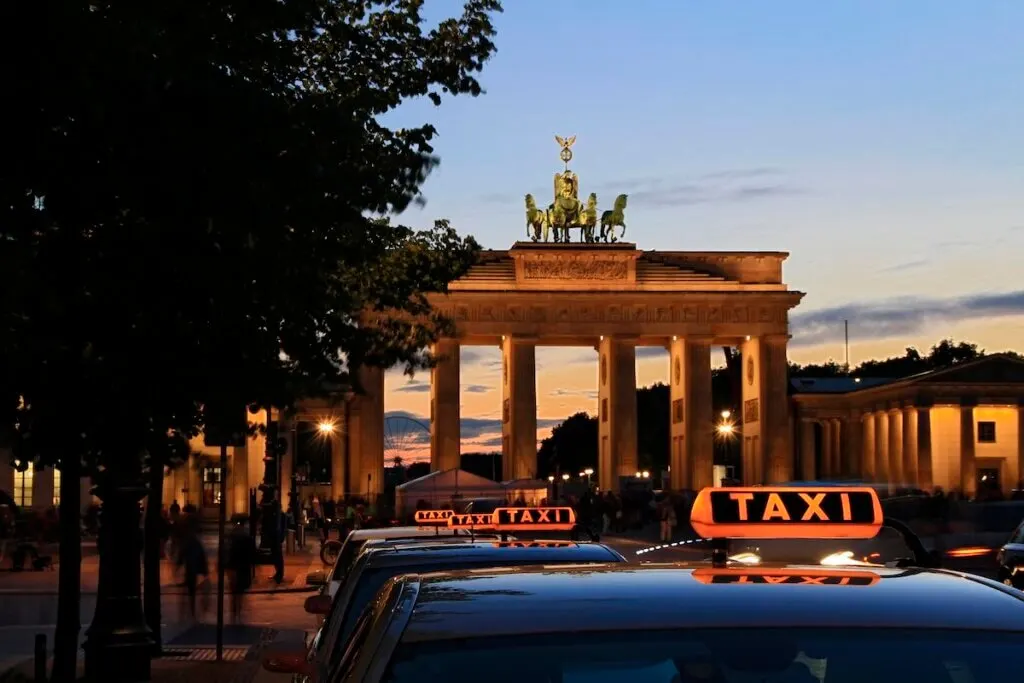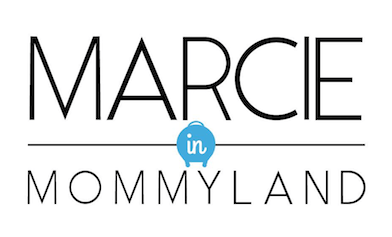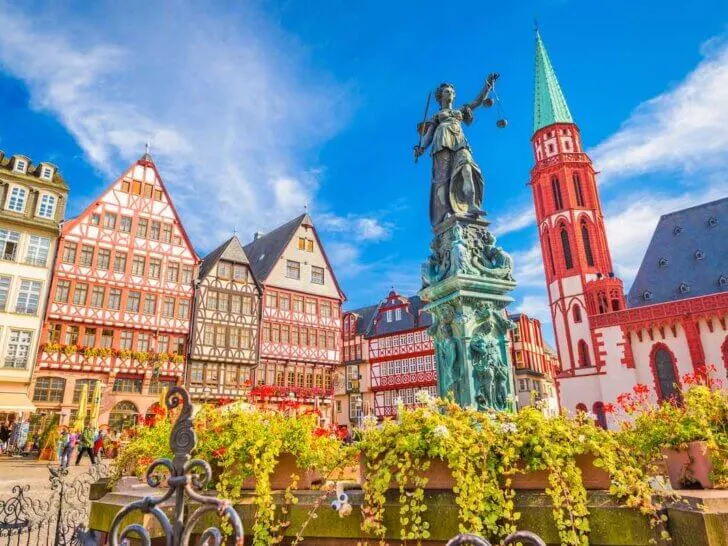Are you planning a trip to Germany for the first time and don’t know what to expect? Keep scrolling to check out my top Germany travel tips for tourists!
This list of Germany travel tips was written by family travel expert Marcie Cheung and contains affiliate links which means if you purchase something from one of my affiliate links, I may earn a small commission that goes back into maintaining this blog.
One of the largest and most welcoming European countries, you won’t regret planning a trip to Germany!
Why should you visit Germany above anywhere else in Europe? Well, it has incredibly diverse and progressive cities like Berlin, fairytale castles like Neuschwanstein, and beautiful rural regions like the Black Forest.
Let’s not forget about the delicious food and world-class festivals, too!
However, traveling to Germany for the first time might seem daunting if you’ve never left your home country or only visited other places in Europe. You could use some key Germany travel tips for first-timers to help you feel less anxious and more excited.
This guide covers all the top things to know before traveling to Germany including the best places to visit in Germany, how to travel around Germany, and how to plan your first time in Germany.
Discover all the Germany travel advice you could possibly need before you say auf wiedersehen to your home and guten tag to a fun vacation with this extensive guide!

Great Germany Travel Tips for First Timers
Planning Your Germany Trip
Germany trip planning could be very overwhelming considering it’s such a big country!
No first-time trip to Germany is complete without a few days in Berlin. You can visit the famous Brandenburg Gate, check out what’s left of the Berlin Wall, and visit tons of world-class museums on Museum Island.

The Rhine Valley is ideal if you like cruising. You can hop on a river cruise and explore several places en route such as Koblenz and the Rhine Gorge which is a UNESCO World Heritage Site.
Baden-Baden is the quintessential German spa town in Germany’s Black Forest region. Nuremberg and its namesake castle are the perfect places for travelers seeking historic and fairytale-esque architecture.
There really is something for all types of travelers in Germany!
How Many Days in Germany?
Giving Germany tips on how many days to spend there depends on where you want to go and what you want to do.

If you want a German city break, you’ll need at least three days in Berlin, Hamburg, or Munich. Visiting Germany during a festival like Oktoberfest, the Christmas Markets, a Pride festival, or a carnival will also require at least three days to enjoy the festivities as well as the city.
Set aside at least one week if you are road-tripping or interrailing around one region like the Romantic Road or Saxony. You’ll only need one day in smaller towns like Rothenburg ob der Tauber to see the highlights.
Public Transportation in Germany
If you want to know how to travel around Germany, you should consider public transport first. It’s famously efficient and affordable. Most cities have a mixture of bus networks, tram lines, subways/metros (usually named S-Bahns or U-Bahns in Germany), and trains.

To travel from city to city on a budget, use FlixBus. If you’d prefer to travel by train, Germany’s high-speed ICE services are perfect.
While there might not be much of a cost saving to booking regional trains in advance, you should book ICE services ahead of time to save a significant chunk of change. It will make all the difference if you’re traveling with your family!
Or, check out the Germany travel pass. This is an unlimited rail pass for travelers living outside Germany. If you plan on taking a lot of trains, the €49 travel pass could soon pay for itself.
Taxis, Ubers and Car Rentals
Uber is available in Berlin, Cologne, Düsseldorf, Frankfurt, Hamburg, and Munich. Berlin, in particular, offers five Uber services: UberX, UberXL, Premium, Green, and Taxi.
If you prefer to use Uber or other rideshare services in your home country, it’ll probably be convenient for you to use them in Germany too.
Taxis are strongly regulated in Germany so you can expect standardized fares, which is great. As with most countries in Europe, they’re more expensive in cities. Increasingly, more and more taxis take card payments but cash is still the standard payment method.

FreeNow is the most popular taxi app in Germany which was previously named MyTaxi. If you plan to use taxis a lot, it’s well worth downloading. If you don’t, ask your hotel for a taxi number and take their card so you can give it to your taxi driver when you need to go back.
Renting a car isn’t an ideal method of transport if you’re sticking to the cities, but it’s perfect if you want to explore the countryside.
One of the things to know before going to Germany is that they mostly drive manual transmission vehicles. Make sure you specify you want an automatic if that’s what you drive at home! Check the latest rental car rates.
Money in Germany
Germany uses the Euro currency. Most hotels, restaurants, and shops will accept card payments to make sure you invest in a good travel-friendly credit card.

American Express cards aren’t always accepted in European countries, especially Germany. Always have a Visa or Mastercard as a backup.
You should always carry some cash as many cafes, smaller vendors, and even some restaurants will only take cash payment. It’s surprising in such a modern country but only accepting cash is still commonplace in Germany and Austria.
If you’re unsure, check payment options before you order so you don’t get caught short! ATMs are widely available all over the country.
Dining in Germany Tips
There are definitely a few key travel tips for Germany you need to know before dining out here.
If it seems like the host or hostess is taking forever to seat you, they’re probably never coming. It’s very common in Germany to sit down at any table that you want to take. If there is a ‘please wait to be seated’ sign then it might be a fancier establishment.

When you ask for water, make sure you ask for tap water if you want to drink still not sparkling. Germans love sparkling mineral water so this will be the default if you don’t specify.
Let’s talk about German cuisine. Traditional food is meat-heavy and carb-loaded (in other words, delicious!) but there are some exceptions.
Five of the most popular German foods are schnitzel (breaded and fried meat), spätzle (egg noodles), bratwurst (sausage), stollen (fruit bread), and kartoffelpuffer (potato pancakes). Sauerkraut is a popular side or bratwurst topping.
Spiced cookies like lebkuchen and glühwein are popular at German Christmas markets.
Don’t Expect Small Talk or Niceties
If you’re from the US, you might expect supermarket cashiers to ask you how your day is going. Launching into a story about getting lost on the U-Bahn or how you got caught in a rainstorm with no coat on are two great examples of what not to do in Germany.
Germans aren’t rude! They say please and thank you, but they just don’t ‘do’ small talk.
Don’t take it personally and don’t be offended if it’s difficult to strike up a conversation with your server or hotel clerk.
Understand Different German Cultures
Would you travel to New York City and expect everyone to be wearing cowboy boots and drinking sweet tea? Nope, because you know that’s more common in the south!

It’s the same if you were to go to Berlin expecting all the locals to be wearing lederhosen or dirndls and drinking stein after stein of beer. You’d only see Germans doing both in the Bavarian region, and only during Oktoberfest.
In fact, you’d be just as likely to enjoy the best falafel or Middle Eastern street food you’ve ever eaten in Berlin as you would the best bratwurst.
One of the best Germany travel tips anyone could give you is to arrive with an open mind. Germany is a very tolerant, welcoming, and multicultural place and it’s all the better for it.
Book a Family Photo Shoot
Whenever we travel, we almost always book a family photo shoot with Flytographer. They are super easy, affordable, AND guarantee that I’ll be in some photos. You can get $25 off if you book through this link or use the code HAWAIITRAVEL.
Get a Travel Adapter
Germany mostly used the Type C plug, which is also known as the ‘Euro’ electrical plug as it’s the most common in Europe. This is the one with two rounded prongs.
They also use the Type E and F plugs, which are similar to the Type C plug as they both have rounded prongs with extra earth clips. All three plugs fit in the same socket, so you don’t need to worry!
Most electronics nowadays can handle 110 to 240 voltage, which is great because Germany’s electrical sockets have 230 V. To be on the safe side, invest in an electrical travel adapter with a voltage converter.
Safety and Awareness in Germany
In the 2020 Global Peace Index, Germany ranks 16 out of 163 countries. In Europe, Germany ranks 11 out of 36 countries. This is great news as it means Germany is a very safe country for tourists!

Violent crime is uncommon and Germany, like the US, takes terrorist threats seriously. Don’t be concerned if you see patrol dogs or increased security at some of the large attractions as this is very normal these days.
There’s a stereotype that Germany is a nation of rule-followers and fortunately, that’s largely true! Locals respect traffic laws and protests usually stay peaceful.
Some of the only things that most tourists should be aware of in Germany are pickpockets, bag-snatchers, and travel scammers. Be extra vigilant in cities and when visiting crowded attractions.
Tips for Traveling to Germany FAQs
When is the best time to visit Germany?
Germany has a temperate climate which means it has cold winters (lows of 32°F/0°C) and warm summers (highs of 80°F/26°C). Northern Germany, especially on the coastline, is generally windier than the rest of the country. Southern Germany is generally warmer, except for the more mountainous regions near the Alps.
The best time to visit Germany for the warmest weather is the summer, June to August. This is also the busiest and most expensive time to visit Germany.
The shoulder seasons of April – May and September – October are warm and are often a cheaper time to travel.
One of the best tips for visiting Germany is to book your vacation during a festival. Oktoberfest in Bavaria (around September and October) and the pre-Christmas periods when most German towns host Christmas markets are wonderful times to visit.
What are the best cities to visit in Germany?
Germany’s three biggest cities are its capital Berlin, Hamburg, and Munich.
Berlin is known for its nightlife and history. Hamburg has lots of art museums and is known for being the city where The Beatles became famous. Munich is known for Oktoberfest and being the main city in Bavaria.
Dusseldorf, Frankfurt, and Cologne are other big German cities with beautiful architecture and lots of things to do.
Want to explore smaller German cities? Heidelberg, Leipzig, and Gorlitz are well worth checking out.
What type of Germany travel visa do I need?
Germany is located in the Schengen Zone so you will likely need a Schengen visa before traveling to Germany.
There are 26 European countries in the Schengen Zone. Having this tourist visa allows you to travel freely in this zone for any 90 days within a 180-day period. If you are an American or Canadian citizen, then this is probably the visa you need.
One of the best Germany travel tips for first timers that anyone could give you is to make sure you have the correct documents before traveling anywhere!
Do you tip in Germany?
Yes, you do tip in Germany, but you don’t need to tip a lot. In a café, you can just round up the bill or leave 50 cents or a euro. If you’re getting a takeaway coffee then tipping isn’t necessary.
In a restaurant, tip around 10% of your bill or approximately one euro per diner. You can leave 15% if you’re in a fancy place or the service/food was exceptional, but don’t feel obliged.
Germany Travel Tips for First Timers Wrap Up
Germany is a huge, diverse country so it’s impossible to know everything about it before you arrive. What this Germany travel guide will give you is some essential tips for traveling in Germany so you can avoid the common pitfalls and mistakes many first-time travelers make.
You will feel much more confident and excited about traveling in Germany so you will make wonderful memories during your vacation to the land of bratwurst and beer!

